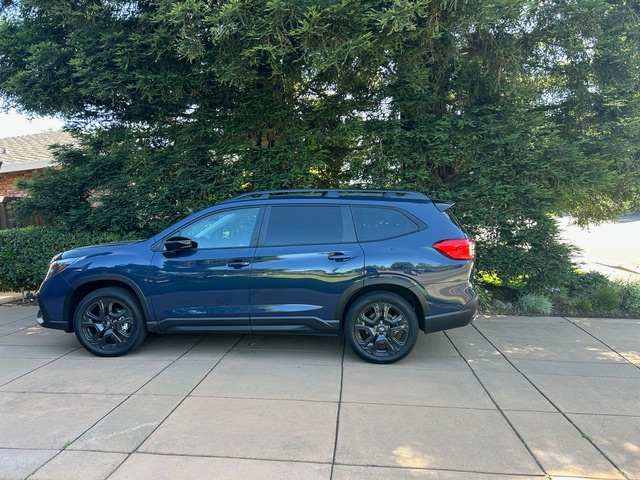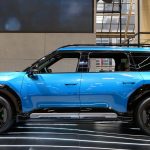Subaru buyers rely on value, versatility and dependability. Its wagons and sport utility vehicles are geared toward active families with recreation equipment (and perhaps a dog) to haul. The Subaru Ascent expands the ability to do both.
Unveiled in late 2018, the mid-sized crossover SUV is the carmaker’s only three-row vehicle. It continues the brand’s reputation, including its standard all-wheel drive.
Available in base, Premium, Onyx Edition, Onyx Edition Limited, Limited and Touring, all Ascents are equipped with a turbocharged 2.4-liter, four-cylinder engine. All variants also feature 260 horsepower matched with a continuously variable transmission.
Gas mileage averages are 21 mpg in city driving, 25 mpg on the highway. The low tallies are the vehicle’s primary downfall and an unsatisfying characteristic of the three-row SUV segment. Acceleration from 0-to-60 miles per hour takes 6.9 seconds, which doesn’t help when a quick burst around a potential traffic dilemma is needed.
The brand’s signature attractions remain. The Ascent does everything right and without extravagance. But therein lays a potential problem. As a pillar of restraint, the inside-the-box SUV is part of one of the more competitive segments.
Value aside, the 2024 Ascent is a holdover from last year’s refreshed model and the continuation of the car’s six-year-old first generation. Segment leaders, including the Kia Telluride and the newly acclaimed Mazda CX-90, have infused luxury into the three-row midsized SUV offerings.
The Telluride and Mazda cost more and can match the Subaru in many areas. The Honda Pilot was a segment standout for many years before lapsing into the status quo. But the Pilot has also had a makeover for 2024. The Nissan Pathfinder, Toyota Highlander, Ford Explorer and Hyundai Palisade have all been refreshed or offered in a new generation.
While Subaru’s symmetrical all-wheel drive system is the carmaker’s signature feature, overall vehicle safety is its strongest attribute. All models come standard with a long list of advanced safety features. Higher trims have further safety upgrades. The NHTSA awarded it five out of five stars in its evaluations; the IIHS named the 2023 Ascent a Top Safety Pick+, its highest rating.
While not the most spacious mid-sized, three-row SUV, the Ascent has its cargo and people moving strengths. With 8.7 inches of ground clearance, off-road excursions are handled better than most of the competition. Seating for seven or eight is available and cargo capacity is 75.6 cubic feet. Towing capacity is 5,000 pounds. The Nissan Pathfinder has a 6,000-pound maximum and Ford Explorer can haul 5,600 pounds.
Like several automakers, Subaru’s third-seat design is problematic. The area is tight for adults and entering and exiting requires basic yoga skills.
Upgrades abound on The Onyx and Onyx Limited editions. The former includes 20-inch black finish alloy wheels, a panoramic sunroof, a power liftgate and water-repellent synthetic leather upholstery. The reviewed Limited Edition gets most of its close relative’s features. But it also has a driver’s seat memory function and additional adjustments, heated second-row seats and an intercom system called Cabin Connect.
The infotainment center is functional and simply designed. Features include Apple CarPlay, Android Auto and a Wi-Fi hotspot. The standard 11.6-inch touchscreen has easy-to-use, large onscreen icons. They operate only via touch, increasing the potential for distracted driving.
With its options, the 2024 Subaru Ascent Onyx Edition Limited costs just under $49,000. Several rivals surpass the $50,000 plateau. The segment’s serious competition keeps manufacturers alert. There’s plenty right with the Ascent, but its rivals, while largely most expensive, have quickened the pace. Subaru best take note.
James Raia, a syndicated automotive columnist in Sacramento, is the founder and senior editor of theweeklydriver.com. Email: [email protected].


